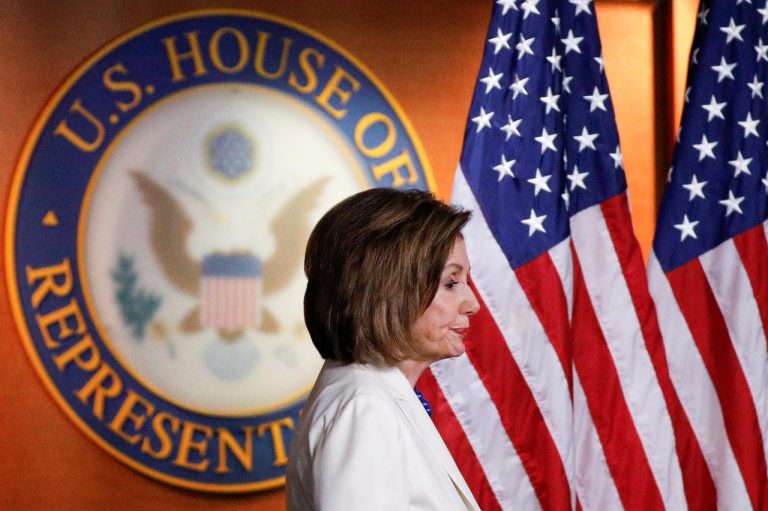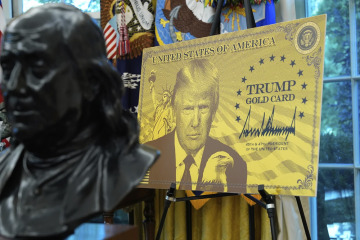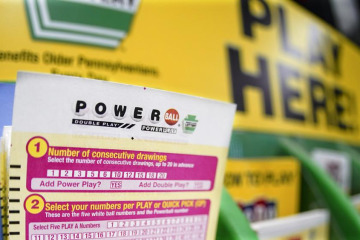Washington DC, March 19, 2020 – U.S. lawmakers were rushing ahead on Thursday with forging a massive economic stimulus measure to counter the destructive impact of the coronavirus, with the Senate’s leader vowing not to let the chamber adjourn until the mission is accomplished.
Although a few lawmakers expressed doubts about the yawning sums under discussion, with one Republican warning this week against “shoveling money out of a helicopter,” the Senate’s majority Republicans said they hoped to have a proposal agreed on with President Donald Trump’s administration by sometime on Thursday.
Only then did they plan to start negotiations with Democrats. Top Democrats said that was backward. Both House of Representatives Speaker Nancy Pelosi and Senate Democratic leader Chuck Schumer said the fastest route to finishing a package would be to have the leaders of both parties and chambers in talks with the White House.
Schumer has proposed his own $750 million plan of action that would expand jobless benefits, help small businesses and fund childcare for healthcare workers.
The Trump administration is pushing for a package of some $1.3 trillion in aid to help businesses and individual Americans devastated by the virus.
Senate Majority Leader Mitch McConnell, a Republican, said the Senate would remain in session until it finishes the legislation and sends it to the House. “I would recommend senators stay around, close,” he said on the Senate floor. “We are moving rapidly because the situation demands it.”
Congress already passed an $8.3 billion measure earlier this month to combat the spread of the new coronavirus and develop vaccines for the highly contagious disease that has infected almost 8,000 people in the United States and killed at least 145. The outbreak has paralyzed large sectors of the U.S. economy and led to fears of a global recession.
On Wednesday, lawmakers approved and Trump signed another $105 billion-plus plan to limit the damage from the coronavirus pandemic through free testing, paid sick leave and expanded safety-net spending.
DIRECT PAYMENTS
The new stimulus plan under discussion could include $500 billion in direct payments to Americans, possibly in the form of two rounds of checks that Trump said could amount to $1,000 each.
The strategy, as outlined in a Treasury Department memo, also would provide $300 billion for small businesses, $50 billion in loans for cash-strapped airlines and $150 billion for loan guarantees to other distressed economic sectors.
Two Republican senators, Marco Rubio and Susan Collins, said the $300 billion for small businesses would be in federally guaranteed loans that could be converted into grants to help keep staff employed and meet customary expenses such as utility costs and lease payments.
They said the aim was to sustain otherwise thriving restaurants, bars, gift shops, hotels and other operations that have been hit hard by the coronavirus outbreak.
“If we do not act to help the small-business sector, I predict that we will see massive layoffs and an inordinate number of small businesses shutting their doors. They simply won’t be able to survive,” Collins said, adding: “My hope is that we will pass it sometime this weekend.”
But senators in both parties expressed concern about rushing into “bailouts” of distressed industries. Senator Ben Sasse, the Republican who gave the warning about shoveling money out of a helicopter, said there was a dangerous “herd mentality” developing in Washington. He was one of eight Republicans who voted against the $105 billion-plus aid bill on Wednesday.
Republican Senator Josh Hawley told reporters that he opposed industry bailouts but might support loans that were fully backed by company assets. “Now if it’s a loan secured by collateral that will be paid back in full and has very strict conditions, maybe,” Hawley said.
The Trump administration also asked Congress for an additional $45.8 billion to shore up U.S. government agencies responding to the outbreak.
In a step aimed at limiting the spread of the virus among the lawmakers themselves, McConnell began doubling the amount of time to vote to limit the number of members in the chamber at any one time. – Reuters









